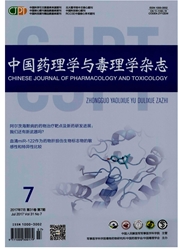

 中文摘要:
中文摘要:
骨形成蛋白2型受体(BMPR2)基因突变与肺动脉高压(PAH)关系的揭示被认为是21世纪该研究领域最重大的发现之一。BMPR2基因突变与大部分遗传性PAH和部分特发性PAH患者的发病有关。临床和动物研究均表明,BMPR2介导的BMP信号通路在PAH发生发展过程中扮演重要角色。近年来,不断深入的研究逐步揭示了BMPR2信号通路参与PAH发病的重要机制,以该信号通路为治疗靶点的可能性正被逐渐揭示。本文以BMPR2信号通路与PAH的关系为基础,从遗传学、表观遗传学和炎症反应机制等角度进行综述,介绍PAH研究领域的最新进展。
 英文摘要:
英文摘要:
The identification of the relationships between mutations of the bone morphogenetic protein type Ⅱ receptor(BMPR2) and pulmonary arterial hypertension(PAH) has been considered to be one of the most significant discoveries in this area in the 21-(st) century.And BMPR2 mutation is responsible for the majority of hereditary PAH as wel as some of idiopathic PAH.Furthermore, clinical and animal expreimental research over the past few years has revealed that BMPR2 signaling pathway plays a critical role in the initiation and progress of PAH, by participateing in the pathogenesis of PAH.In addition, the potential that BMPR2 signaling pathway is used as a therapeutic target is being evaluated.This review summarizes our current understanding of the role of BMPR2 mutations in PAH from the perspectives of genetics,epigenetics, inflammation as well as interactions with other significant pathways.
 同期刊论文项目
同期刊论文项目
 同项目期刊论文
同项目期刊论文
 sildenafil potentiates bone marphogenetic protein signaling in pulmonary arterial smooth muscle cell
sildenafil potentiates bone marphogenetic protein signaling in pulmonary arterial smooth muscle cell Investigation into the Toxicity of Traditional Uyghur Medicine Quercus Infectoria Galls Water Extrac
Investigation into the Toxicity of Traditional Uyghur Medicine Quercus Infectoria Galls Water Extrac Metoprolol restores expression and vasodilatation function of AT2R in spontaneously hypertensive rat
Metoprolol restores expression and vasodilatation function of AT2R in spontaneously hypertensive rat 期刊信息
期刊信息
